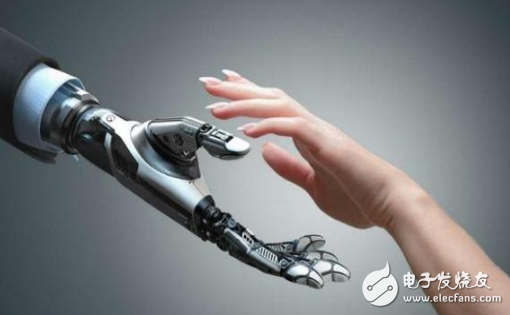The AI ​​heat wave is coming, the talent shortage is short, and the Internet giant is strong.
AI technology has gained significant traction in the capital market. In early 2016, AlphaGo brought artificial intelligence into the spotlight, and governments began to emphasize its development. The Ministry of Industry and Information Technology stated that by 2030, China’s AI technology would reach world-leading levels, positioning itself as a global hub for AI innovation.
At the venue of the AI Challenger Global AI Challenge, a contestant presented a PPT that contained a sentence generated using deep learning algorithms trained on images provided by the organizers. This showcased how AI can now not only recognize but also describe visual content.

When categorized by industry, the technique used to identify and describe images falls under computer vision. Following the second AI boom in the 1980s, AI research branched out into areas like machine vision and natural language processing.
The emergence of neural networks in 2012 marked a turning point for the third wave of AI. With advancements in computing power and data storage, commercial applications of AI have surged. In image recognition and language translation, AI has already proven its value and continues to evolve rapidly.
Beyond technical achievements, AI is attracting substantial investment. Venture capital firms and tech giants are pouring money into AI research and development. Companies are actively announcing their AI strategies, with some securing billions in funding to expand their AI initiatives. Even students in computer science and electronic engineering are showing interest in AI careers.
"For people outside the field, saying you're studying AI might sound impressive, but it's rarely mentioned in schools," said Shuai Jingwen, a third-year electrical engineering student at the University of Electronic Science and Technology of China. He has participated in the AI Challenger competition three times in the past six months. As AI gains popularity, more competitions are being organized by tech companies and investors, aiming to attract and nurture future AI talent.
Companies hosting these events hope to secure top talent for the industry. According to Zhou Ming, deputy director of the Education and Testing Center of the Ministry of Industry and Information Technology, China faces a shortage of over five million AI professionals. Job postings from internet companies at AI Challenger events reflect this demand. Kai-Fu Lee, CEO of Innovation Works, expressed his hope that within three years, China could produce young AI scientists capable of competing globally.
Innovative Workshop, one of the organizers of the AI Challenger, has been a strong advocate for AI. Since 2016, Kai-Fu Lee has been promoting AI concepts at various investment forums. One frequently cited slide in his presentations asks: "How many jobs will AI replace?" Although AlphaGo made AI famous in 2016, initial investor enthusiasm was slow to build. An AI summit held in mid-2016 faced limited attendance.
However, by the end of the year, AI investment began to surge. Computer science and engineering professors were invited to speak at investment conferences, with one researcher receiving multiple invitations in a single week. Funds poured into the sector, leading to the rise of numerous AI startups. According to McKinsey, tech giants invested between $20 billion and $30 billion in AI in 2016, mostly in R&D and deployment, with a smaller portion going to acquisitions and early-stage investments.
Government support for AI has also grown. In May 2016, four ministries issued the “Internet +†AI Three-Year Action Plan. By 2017, AI was included in the government work report, and the State Council released the “New Generation AI Development Plan.†The plan aims to make China a global leader in AI by 2030.
Luo Ruotian, a Ph.D. student in computer vision at the Toyota University of Technology in Chicago, noted that his field has become increasingly competitive. Computer science and electronic engineering remain the primary pathways for AI talent. Liu Yang, an associate professor at Tsinghua University, observed a sharp increase in students choosing computer science after AI became a hot topic.
The growing demand for AI talent has made it a highly sought-after career. Shuai Jingwen shared that more graduates in his field are joining AI startups. A professor at another university reported that AI graduates saw significant salary increases in 2016, raising expectations among current students.
The AI talent shortage is evident. A 2017 Tencent white paper revealed that there are about 300,000 AI professionals globally, with only 20,000 graduating annually. This gap is expected to persist for years. To address this, the industry is focusing on expanding both the number and quality of AI talent through research institutes and competitions like the AI Challenger.
This year’s AI Challenger attracted 8,892 teams and 106,790 participants, with 92% from China, mainly from Beijing, Guangdong, and Shanghai. These efforts highlight the growing importance of AI and the need for continued investment in education and innovation.
Silicone Keypad,Silicone Keyboard,Customized Rubber Keypad,Custom Silicone Keypad
CIXI MEMBRANE SWITCH FACTORY , https://www.cnjunma.com
